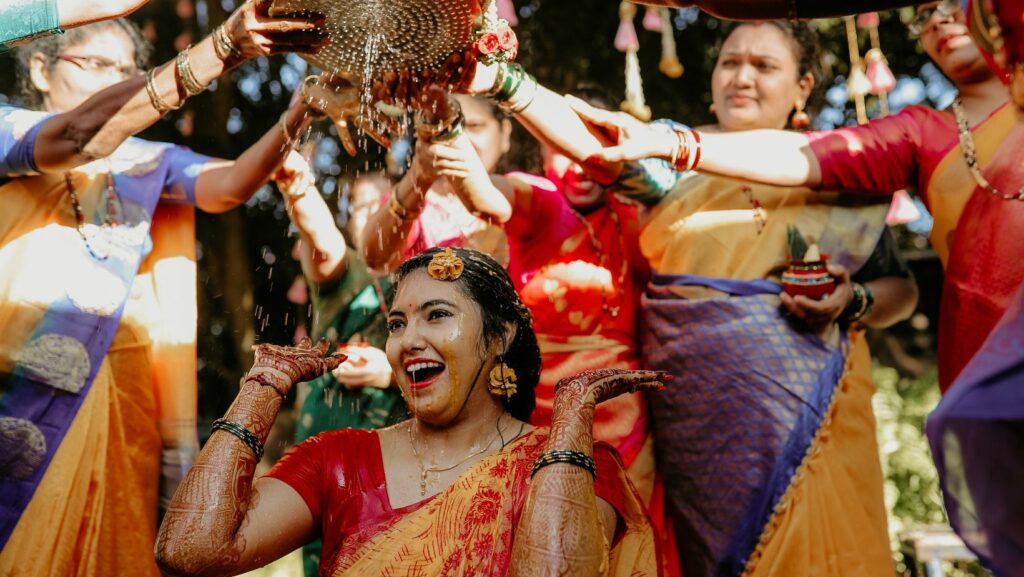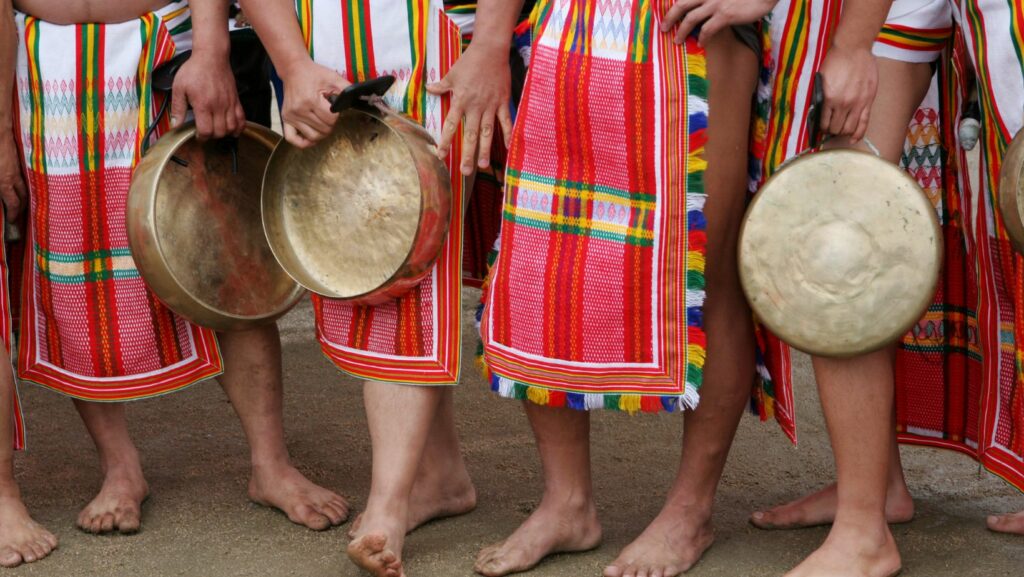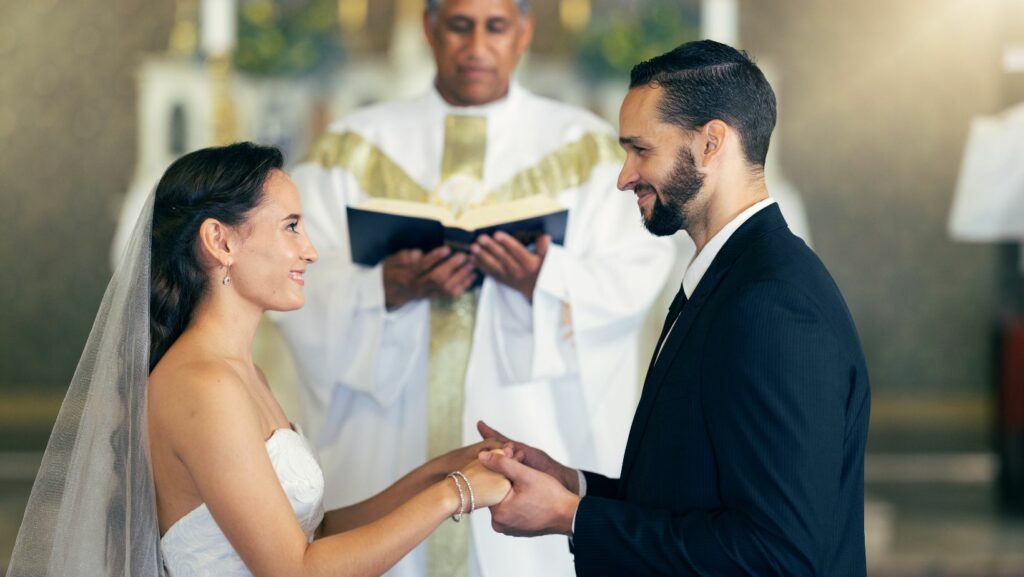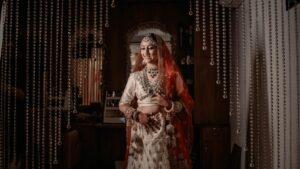 A traditional Nigerian wedding is a vibrant celebration that beautifully intertwines cultural heritage with modern elements. Known for its rich tapestry of customs and rituals, this event is a testament to Nigeria’s diverse ethnic groups, each bringing its unique flair to the festivities. From the colorful attire to the rhythmic beats of traditional music, every aspect of a Nigerian wedding tells a story of love, family, and community. The ceremony often serves as a grand showcase of unity, where families come together to honor age-old traditions while embracing contemporary influences. Guests are treated to a feast for the senses, with opulent decorations, sumptuous cuisine, and lively dance performances. Whether it’s the Yoruba, Igbo, or Hausa traditions being celebrated, each wedding is a unique experience that highlights the beauty and diversity of Nigerian culture. These weddings not only unite two individuals but also strengthen the bonds between entire families and communities.
A traditional Nigerian wedding is a vibrant celebration that beautifully intertwines cultural heritage with modern elements. Known for its rich tapestry of customs and rituals, this event is a testament to Nigeria’s diverse ethnic groups, each bringing its unique flair to the festivities. From the colorful attire to the rhythmic beats of traditional music, every aspect of a Nigerian wedding tells a story of love, family, and community. The ceremony often serves as a grand showcase of unity, where families come together to honor age-old traditions while embracing contemporary influences. Guests are treated to a feast for the senses, with opulent decorations, sumptuous cuisine, and lively dance performances. Whether it’s the Yoruba, Igbo, or Hausa traditions being celebrated, each wedding is a unique experience that highlights the beauty and diversity of Nigerian culture. These weddings not only unite two individuals but also strengthen the bonds between entire families and communities.
Traditional Nigerian Wedding
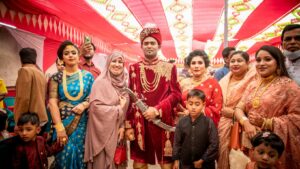 Traditional Nigerian weddings offer a spectacular fusion of cultural vibrancy and heritage. Rooted in Nigeria’s vast ethnic diversity, these ceremonies encompass distinct traditions across various communities. The Yoruba bride, for example, often wears a brightly colored gele (head wrap) and intricate iro and buba (blouse and wrapper) attire. Igbo weddings feature the bride in a George wrapper and blouse, adorned with coral beads, symbolizing beauty and prosperity. The Hausa bride showcases a richly embroidered abaya and elaborate jewelry. These celebrations extend beyond attire. Traditional Nigerian weddings feature diverse rituals, each symbolizing love and respect. During the Yoruba engagement ceremony, known as the “introduction,” families formally meet and engage in gift exchanges. In Igbo ceremonies, the bride’s price is negotiated in a custom called “Igba Nkwu,” or wine carrying, where the bride identifies her groom in a symbolic gesture. The Hausa tradition of “Kamu” involves a playful negotiation for the bride’s unveiling.
Traditional Nigerian weddings offer a spectacular fusion of cultural vibrancy and heritage. Rooted in Nigeria’s vast ethnic diversity, these ceremonies encompass distinct traditions across various communities. The Yoruba bride, for example, often wears a brightly colored gele (head wrap) and intricate iro and buba (blouse and wrapper) attire. Igbo weddings feature the bride in a George wrapper and blouse, adorned with coral beads, symbolizing beauty and prosperity. The Hausa bride showcases a richly embroidered abaya and elaborate jewelry. These celebrations extend beyond attire. Traditional Nigerian weddings feature diverse rituals, each symbolizing love and respect. During the Yoruba engagement ceremony, known as the “introduction,” families formally meet and engage in gift exchanges. In Igbo ceremonies, the bride’s price is negotiated in a custom called “Igba Nkwu,” or wine carrying, where the bride identifies her groom in a symbolic gesture. The Hausa tradition of “Kamu” involves a playful negotiation for the bride’s unveiling.
Music and dance play crucial roles in these weddings, enhancing the festive atmosphere. Yoruba weddings often involve talking drums and high-energy dances like “bata.” Igbo ceremonies feature the lively “Igba Nkwu” dance and soul-stirring folk songs. At Hausa weddings, vibrant drumming and the graceful “Yankara” dance take center stage. The sense of community remains central. Friends and extended family actively participate, underscoring the wedding’s communal nature. Feasts include jollof rice, suya (spicy meat skewers), and pounded yam, reflecting Nigeria’s rich culinary diversity.
Cultural Significance And Traditions
Traditional Nigerian weddings hold profound cultural significance, celebrating the union with deeply rooted traditions. These celebrations affirm identities, uphold family values, and forge strong community ties.
Pre-wedding Rituals
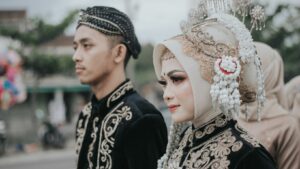 Traditional Nigerian weddings often include intricate pre-wedding rituals that carry deep cultural meanings. Among the Yoruba, the “introduction” ceremony formally brings families together, setting a foundation for the wedding. Igbo families partake in the “Ime Ego,” where dowry negotiations represent the unity of families through mutual respect and understanding. Hausa ceremonies involve “Kayan Zance,” exchanging gifts, highlighting commitment to long-term relationships.
Traditional Nigerian weddings often include intricate pre-wedding rituals that carry deep cultural meanings. Among the Yoruba, the “introduction” ceremony formally brings families together, setting a foundation for the wedding. Igbo families partake in the “Ime Ego,” where dowry negotiations represent the unity of families through mutual respect and understanding. Hausa ceremonies involve “Kayan Zance,” exchanging gifts, highlighting commitment to long-term relationships.
The Role Of The Families
Families play a pivotal role in traditional Nigerian weddings, emphasizing unity and collaboration. The elders, often respected mediators, facilitate discussions and offer blessings. Yoruba weddings feature the “Alaga” family spokespersons, guiding proceedings through humor and diplomacy. Igbo families present “Umunna,” representing the collective will of the wider family network during key decisions. Hausa families engage in “Sadauki,” wherein close family members support and protect the couple. This familial involvement underscores the connectedness that reinforces the marriage bond within the community.
Attire And Fashion
Traditional Nigerian weddings are renowned for their extravagant attire and vibrant fashion. Each ethnic group showcases distinct clothing styles and unique accessories.
Traditional Clothing
Yoruba brides often wear a gele and an iro and buba ensemble, featuring bright colors and elaborate patterns. Grooms typically don an agbada, a flowing robe adorned with unique embroidery. In Igbo weddings, the bride’s George wrapper and blouse combine intricate designs with vibrant hues, while grooms wear isiagu shirts known for lion head motifs. Hausa bridal attire includes richly embroidered abayas, with grooms wearing babanriga in matching fabrics. These garments reflect cultural heritage and offer a visual feast of diversity.

